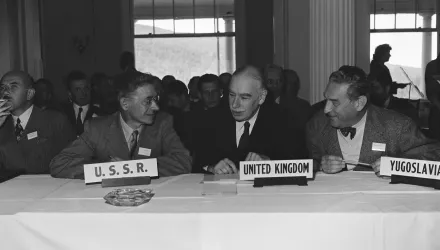International Security is America's leading peer-reviewed journal of security affairs.
Summary
Although projections of nuclear proliferation abound, they rarely are founded on empirical research or guided by theory. Even fewer studies are informed by a comparative perspective. The two books under review—The Psychology of Nuclear Proliferation: Identity, Emotions, and Foreign Policy, by Jacques Hymans, and Nuclear Logics: Alternative Paths in East Asia and the Middle East, by Etel Solingen, are welcome exceptions to this general state of affairs, and represent the cutting edge of nonproliferation research. Both works challenge conventional conceptions of the sources of nuclear weapons decisions and offer new insights into why past predictions of rapid proliferation failed to materialize and why current prognoses about rampant proliferation are similarly flawed. While sharing a number of common features, including a focus on subsystemic determinants of national behavior, the books differ in their methodology, level of analysis, receptivity to multicausal explanations, and assumptions about decisionmaker rationality and the revolutionary nature of the decision. Where one author emphasizes the importance of the individual leader’s national identity conception in determining a state’s nuclear path, the other explains nuclear decisions primarily with regard to the political-economic orientation of the ruling coalition. Notwithstanding a tendency to overinterpret evidence, the books represent the best of contemporary social science research and provide compelling interpretations of nuclear proliferation dynamics of great relevance to scholars and policymakers alike.
Potter, William C. and Gaukhar Mukhatzhanova. “Divining Nuclear Intentions: A Review Essay.” Summer 2008
The full text of this publication is available in the link below.



